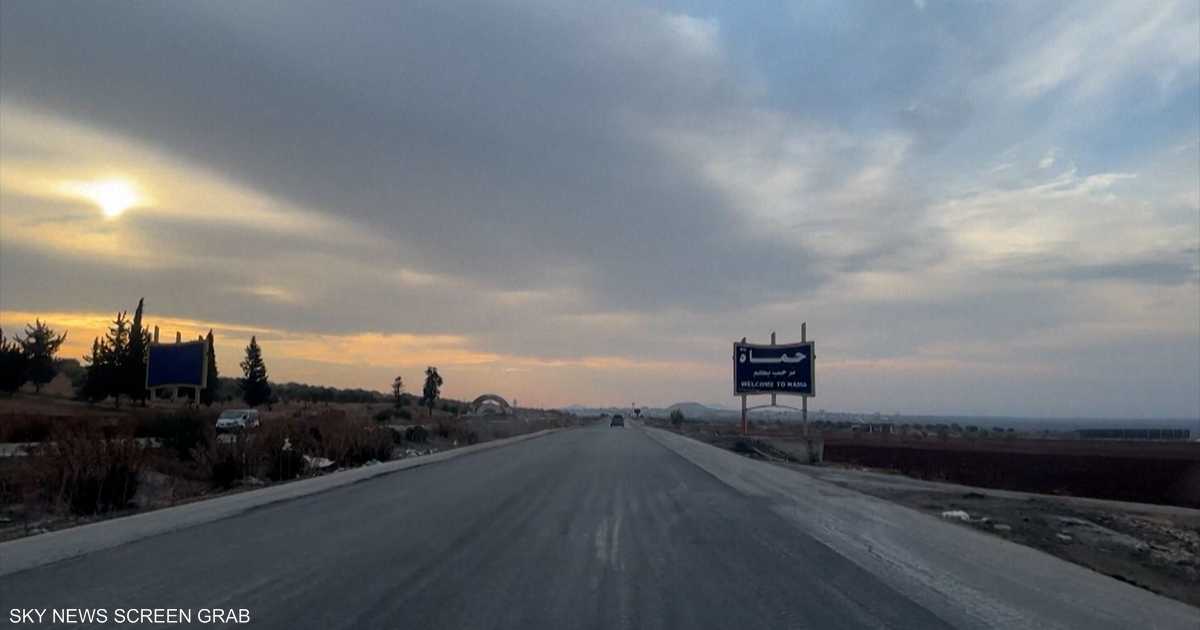Physical Address
304 North Cardinal St.
Dorchester Center, MA 02124


In light of the significant absence of the role of major allies, Russia andIranThe question arises as to what are the reasons for these movements and whether they indicate deeper changes in the balance of power on the ground.
“editorial officeOn Sky News Arabia, he hosted a group of experts to analyze the changing Syrian scene, where Muhannad Azavi, director of the Sakr Center for Strategic Studies, Firas Al-Naib, head of the Center for Strategic Studies, Hossam Taleb, a writer and political researcher from Damascus, and Jahed Touz, former adviser to the Turkish Prime Minister from London took part in the discussion.
Where is the Syrian army?
The discussion began by asking the central question: “Where is the Syrian army in light of these rapid transformations?” Regarding the withdrawal Syrian forces From the front line with armed organizations, and these organizations occupied strategic locations in Hama and Idlib.
The view from Damascus
Hossam Taleb commented that the movements were the result of “direct intervention” by NATO NATO andIsrael Through intensive Turkish support to armed groups. He explained it Syrian army It is repositioning itself in safer areas to avoid costly urban battles, relying on continued Russian air support.
Russia: Reducing its role or repositioning?
Muhanad Azavi discussed the absence of a strong Russian presence on the Syrian scene, noting that Russia’s successes on the ground in Ukraine have led it to reorder its priorities.
He pointed to the possibility of a “hidden agreement” due to which Russia would rather focus its influence in the Black Sea than in the Mediterranean.
Turkey and armed organizations…reading from London
From London, Cahit Toz believes that Turkey supports these organizations as part of its plans to protect its national security. He stressed that Ankara will not allow the establishment of any entity on its borders that threatens its stability, calling for the necessity of sitting at the negotiating table to end the Syrian conflict.
Iran…weakening presence and repercussions in the region
Regarding the absence of an Iranian role in light of these developments, MP Firas explained that Iran is facing internal and external challenges that make it less able to intervene, especially after the blows suffered by its allies in Lebanon.
Statement by the Syrian Minister of Defense
Meanwhile, the program carried a statement by Syrian Defense Minister Ali Mahmoud Abbas in which he confirmed the readiness of the Syrian Arab Army to retake all areas recently controlled by armed organizations. The announcement included promises to restore safety and security to Syria, regardless of challenges.
Battle of Hama… Will the army regain control?
Muhanad Azavi discussed the military capabilities of the Syrian army in returning the locations from which it withdrew and pointed out that the military withdrawal weakens the effectiveness of the forces, which makes the return of Hama and Aleppo a complex matter and requires a longer time and greater efforts.
Turkey…long term plans?
Cahid Toz touched on Turkey’s goals, explaining that Ankara is working on long-term plans, and called on the Syrian regime to interact with the proposed political initiatives instead of military escalation.
The Future of the Syrian Crisis: Escalation or Solutions?
On the future of Syria amid this escalation. MP Firas stressed that continued escalation will only lead to more chaos, calling for comprehensive negotiations involving all parties to save the country from a total collapse scenario.
Experts unanimously agree that the Syrian crisis has entered a new phase of complexity, as international interests intertwine with transformations on the ground. With increasing uncertainty about the positions of the main players, a political solution remains the only way to end this long-standing conflict.